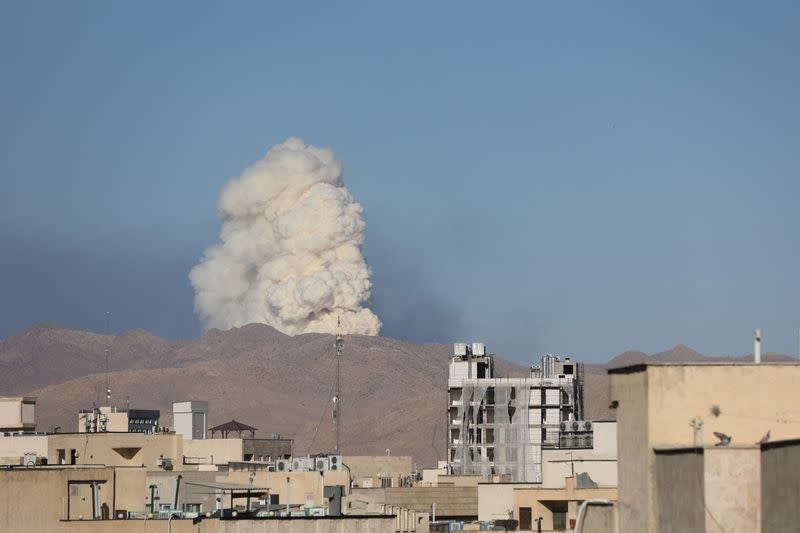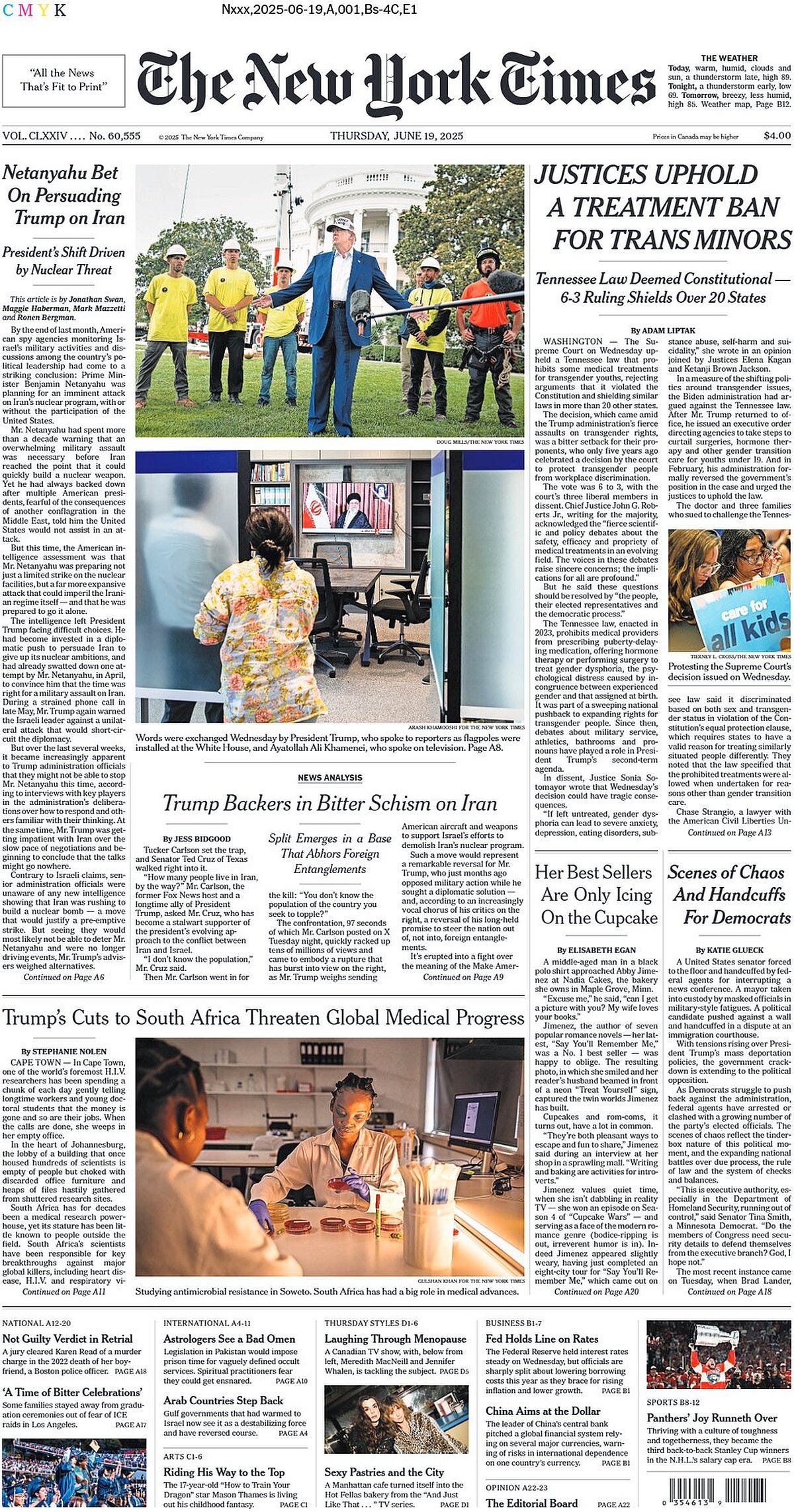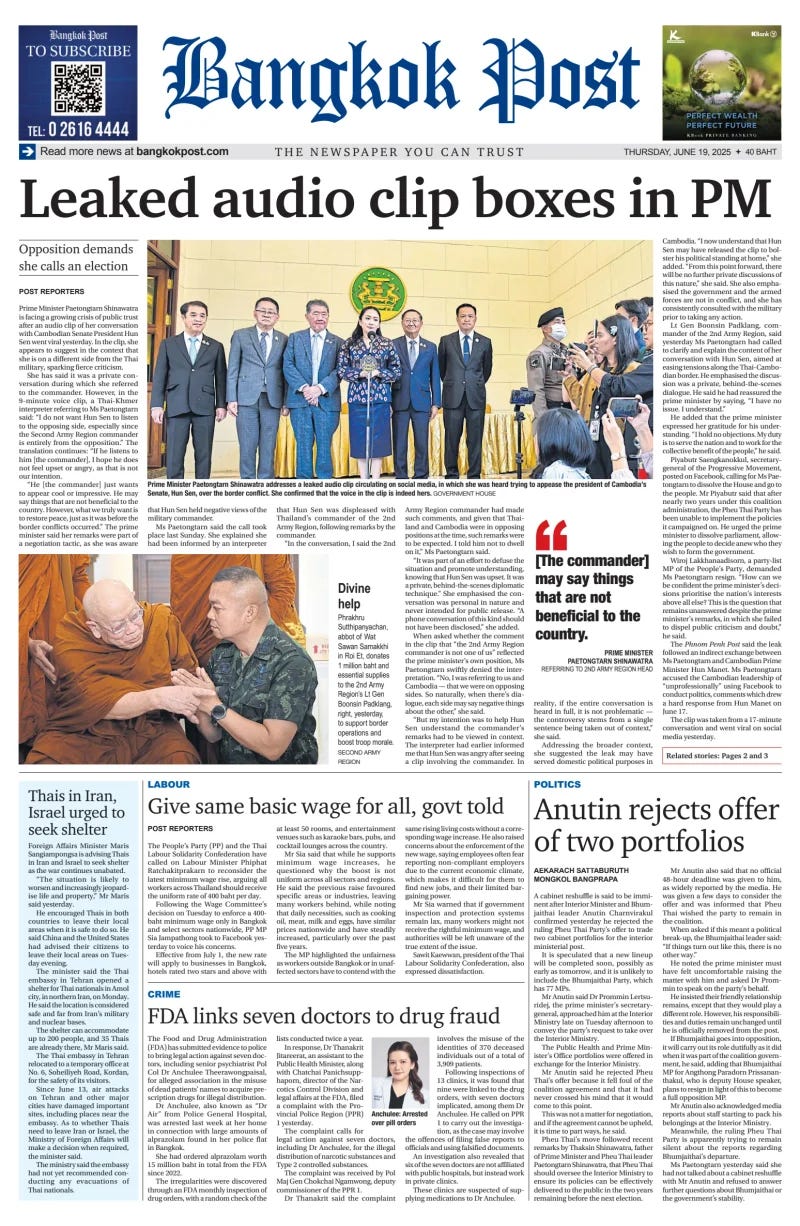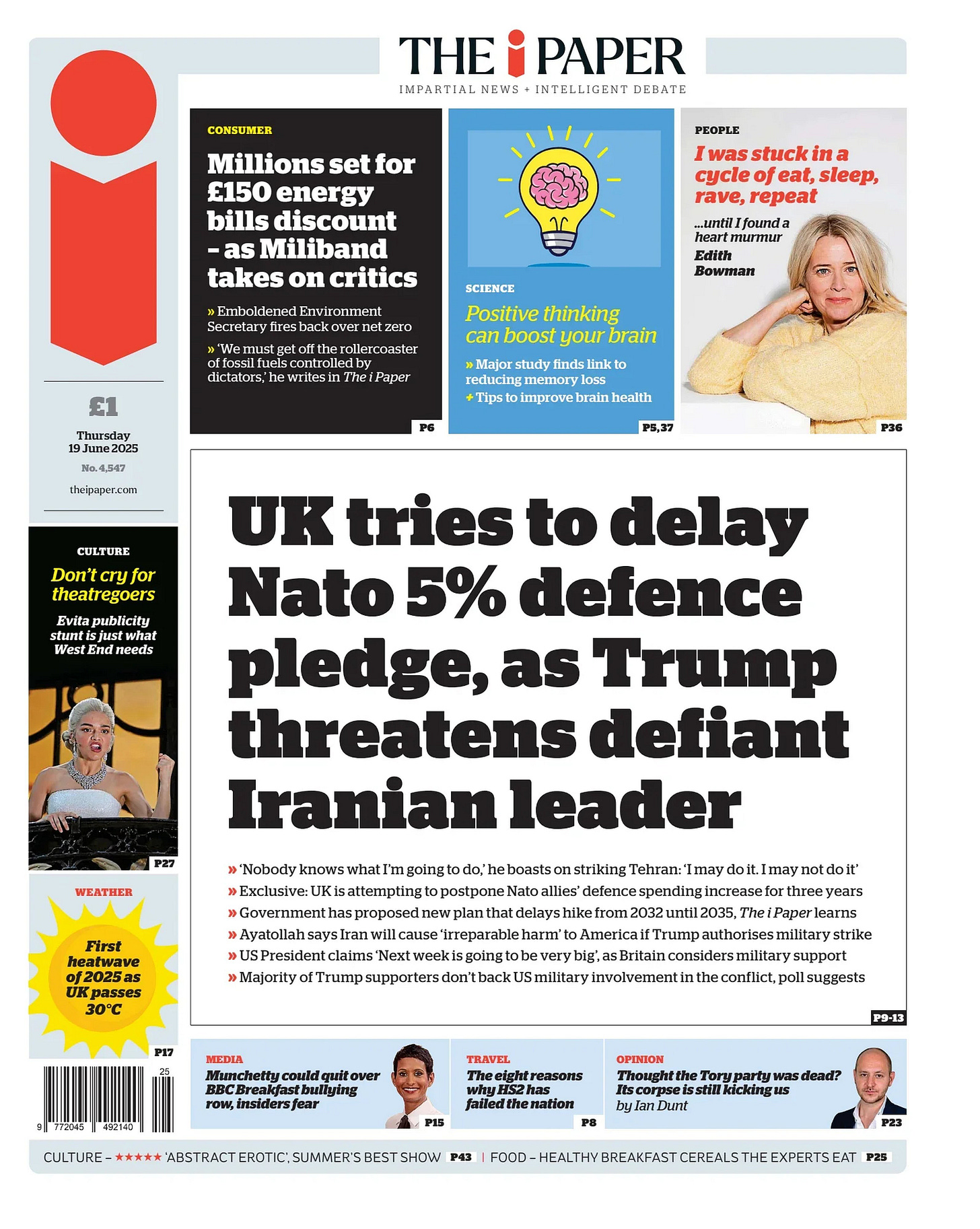Europe Scrambles for Relevance as Israel-Iran War Escalates
Amid a wave of Israeli strikes & threats of U.S. intervention, European diplomats attempt a last-ditch effort in Geneva to pull Iran back to negotiating table & avert a wider regional conflagration
If you find value in the sharp analysis and on-the-ground insights of World Briefing, consider upgrading to a paid subscription. Your support helps sustain independent, globally-minded journalism that cuts through the noise—and gives you access to exclusive dispatches, deep dives, and behind-the-scenes reporting you won’t find anywhere else. In a world where the stakes have never been higher, staying informed has never been more important.
European officials are making a diplomatic push to de-escalate the conflict between Israel and Iran after nearly a week of deadly fighting, even as Israel’s defense minister warned on Thursday that the country’s military would intensify its strikes on “strategic targets” in Iran. After days of back-channel discussions, the Europeans, who have been effectively sidelined since the war started, are now trying to exert what limited leverage they have as weapons suppliers or potential peacemakers to try to end the war. At talks in Geneva on Friday, they are expected to urge the Iranians to return to negotiations, even as President Trump mulls the possibility of American military action against Iran. The meeting would be the first formal gathering between Iranian and Western officials since Israel began attacking Iran’s nuclear facilities. The diplomatic efforts came as the Israeli military launched a wave of strikes on Thursday against targets in Iran, including a nuclear complex. Israel’s defense minister, Israel Katz, said the country would step up its attacks on Iran to “remove the threats to the state of Israel,” after a barrage of Iranian missiles hit several locations, including a major hospital complex in southern Israel. The latest exchange of fire came as uncertainty hung over the Middle East about whether or not Mr. Trump would send American forces to join Israel’s sweeping campaign against Iran’s nuclear program and military. “I have ideas as to what to do,” Mr. Trump said during an Oval Office event on Wednesday. He added, “I like to make a final decision one second before it’s due, you know, because things change.” - NYT
Former UN humanitarian chief Martin Griffiths has expressed hope that tomorrow’s planned meeting between Iran’s foreign minister and European counterparts will “shine a light on possible alternatives to war”. The meeting is “well-timed” and opportune “not because they’re going to solve the problem”, but because it gives Iran a discrete way to relay its expectations and any concessions it may be willing to make, Griffiths told Al Jazeera. “A diplomatic solution as evinced by those talks tomorrow could be very, very important,” he said. “A diplomatic deal is always more messy, less efficient in some ways, but it’s safer.” - Al Jazeera
U.S. President Donald Trump doesn’t want Russian leader Vladimir Putin to mediate in the Israel-Iran conflict before he ends the Kremlin’s war on Ukraine. Moscow has repeatedly offered to negotiate an end to the escalating missile attacks Israel and Iran are carrying out. But although Trump previously said he would be “open” to Putin serving as a mediator, he changed his tune Wednesday. “He actually offered to help mediate. I said, ‘Do me a favor, mediate your own. Let’s mediate Russia first, okay?’” Trump told reporters at the White House. “I said, ‘Vladimir, let’s mediate Russia first, you can worry about this later.’” Russia is a close ally of Iran: Tehran supplied Moscow with military drones to strike Ukraine and, in return, has received help with its civilian nuclear program. The Kremlin has also maintained warm relations with Israel, and Israeli Prime Minister Benjamin Netanyahu frequently visited Moscow before 2022, which could put Putin in position to play power broker in the region - Politico
Palestinian Health officials say 84 Palestinians have been killed by Israeli attacks across Gaza today. At least 59 of those were killed in Gaza City and the north of the enclave, while 16 were killed while waiting for aid assistance near the Netzarim Corridor - Al Jazeera
Ukraine "will have to understand and accept" the emerging post-war realities, Kremlin spokesman Dmitry Peskov said on Thursday, expressing optimism about progress toward a third round of talks with Kyiv. "Ukraine will certainly have to understand that the situation has changed compared to what it was three years ago," Peskov told RBC, a Russian business news broadcaster, on the sidelines of the St. Petersburg International Economic Forum. “Apparently, not to the end (they don’t understand), but at least they probably carefully read the text of the memorandum that we handed over.” He noted that the document, submitted by Moscow, outlines the “new realities” that Ukraine must recognize. Peskov added that humanitarian agreements reached so far have created the basis for more substantial progress. “The fact that many wounded young people were given the opportunity to return home is a very important result,” he said, referring to a key achievement in the ongoing talks. On the potential for a landmark summit, Peskov said a trilateral meeting between Russian President Vladimir Putin, US President Donald Trump, and Ukrainian President Volodymyr Zelenskyy “should be the result of long-term work and already prepared points.” He also said Israel had provided assurances regarding the safety of Russian specialists working at Iran’s Bushehr Nuclear Power Plant amid escalating regional tensions. The Kremlin has repeatedly urged Kyiv to resume negotiations, citing the Istanbul talks as a foundation. The first two rounds of peace talks between Russia and Ukraine were held in Istanbul on May 16 and June 2, 2025, but ended without a breakthrough - Anadolu
As expected, US President Donald Trump floated the idea at the G7 Summit in Canada that Russia should be invited back into the bloc of the world’s wealthiest nations. I told BBC, President Vladimir Putin would likely turn down the invite…
Thailand’s Prime Minister Paetongtarn Shinawatra faced growing calls for her resignation in a deepening political crisis set off by a leaked recording of her negotiating with Cambodia’s former leader in the two nations’ latest border dispute. Paetongtarn apologized to the public on Thursday, after a major coalition partner used the leaked phone call to pull out of the fragile government led by her Pheu Thai Party. Paetongtarn has already been criticized for a perceived soft stance toward Cambodia, especially by right-wing nationalists who are longtime foes of her father, former Prime Minister Thaksin Shinawatra. The latest border dispute involved an armed confrontation May 28 in a relatively small contested territory in which one Cambodian soldier was killed - AP
China reduced its stockpile of US Treasuries to a 16-year low in April, as an escalating trade war with Washington sparked concerns about the long-standing status of American government bonds as the world’s safest asset. Beijing’s holdings dropped to US$757 billion, down US$8.2 billion from March, according to the latest data released by the US Treasury Department. The figures for April marked the second consecutive month of decline and the lowest level since March 2009, according to data compiled by Wind. Having already slipped to the No. 3 position among foreign holders in March – behind Japan and the United Kingdom – China continued its steady retreat from US government debt, a trend that began during Trump’s first term - SCMP
The Princess of Wales has pulled out of attending Royal Ascot at the last minute as she continues to 'find the right balance' following her battle with cancer. Kate is said to be 'disappointed' at not attending the famous social and sporting occasion in Berkshire with her husband Prince William and the King and Queen. Racegoers had been hoping to see the Princess after the Prince of Wales was named as one of the figures awarding race prizes during the second day of the meet. Ascot officials had confirmed at 12pm that the Princess was due to be in the second carriage in the royal procession with William, in a published carriage list. But less than half an hour later, Kensington Palace confirmed just before 12.30pm that Kate would not be attending - and a revised carriage list was published by Ascot. MailOnline understands the Princess was 'disappointed' not to be in attendance 'but she has to find the right balance as she fully returns to public facing engagements'.
Kremlin economists have proposed requiring Russians to pay “pensions” to their elderly parents themselves. To solve demographic problems, all working citizens could be required to pay an additional tax, the proceeds of which would be transferred to their parents of retirement and pre-retirement age. The tax amount could be 3-15% of a citizen’s income, and the state could transfer this money to his parents, primarily his mother, at the age of 50-65. These measures are considered as a way to solve the problem of declining birth rates and population aging - Moscow Times
A new series of polls show that just under half of Moldovans think the country is going in the right direction (48% wrong direction, 3% unsure). This is a 20 year high for right track / wrong track polling. When asked to list their top problems respondents noted cost of living 39%, low income 26%, corruption 20% and unemployment 18%. These numbers did not translate into popularity for the ruling party in the poll, which found that PAS has the support of a majority of voters going into parliamentary elections, but not necessarily enough to form a government - Moldova Matters





